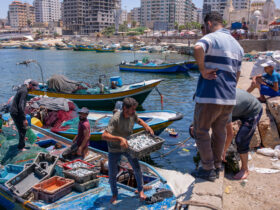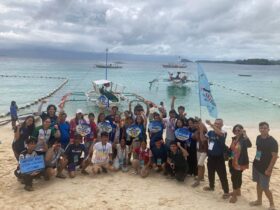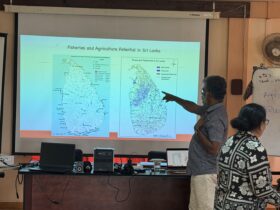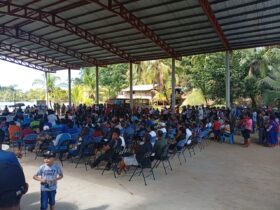Recommendations from: Conference on artisanal fisheries, protected areas and climate change, 31 August – 3 September 2010, Recife, Brazil
The Conference acknowledges
The importance of the marine extractive reserves along the Brazilian Coast as means of marine resources conservation and the survival of a diversity of cultures and ways of living of artisanal fishers
The role of these reserves on the strenghening of fishers organizations as each marine extractive reserves and reserves for sustainable developments requires the creation of strong local social organizations and institutions.
The role of the marine extractive reserves in determining a marine territory to be managed by the organizations of fishers.
The role of these reserves allows also a growing participation of women.
The Conference recommends
1. A further development of legal instruments for the recognition of fishing territories of coastal artisanal fishing communities also outside the existing marine reserves.
2. The establishment of permanent fórum of the civil society for the discussion of the demands of artisanal fishing communities, monitoring of government activities and projects related to the coastal and riverine areas.
3.The organization of an electronic network by civil society organizations and marine reserves associations to exchange ideas, of positive experiences at local level, dissemination of information on disrespect of fishers rights, and organization of workshops,
4.The organization of a Conference every two years, similar to the present one to discuss and monitor the development of marine extractive reserves and to the exchange of experiences among them.
On fishers rights, territories and marine extractive reserves
The Conference acknowledges the growing number of marine reserves for sustainable use as an important strategy for fish resources conservation particularly in the North and Norheast regions where most of the 22 already established reserves are located and many more are being planned. It also recognizes that a growing organization of local associations are essential for the establishment and development of these reserves particularly because as the number is increasing, conflict with other uses of the coastal area also increase. In view of this, the Conference calls Government and social society:
To respect and support the autonomous movements of Fisher women in order to increase their social visibility and the importance of their role in the fishing, processing and trading process.
To reinforce and expand the legal status and rights of women in fisheries, including their role in the management of marine extractive reserves.
To expand health and education services taking into account the specific character of fishing activities of women in the coastal communities.
To respect fishers rights on their territories and establish a moratorium on the expansion of commercial shrimp farms as they affect negatively mangrove and the living of artisanal fishers.
To require that the Public Ministry from the Ministry of Justice be more involved in the solution of growing conflicts among artisanal fisheries and large scale activities.
To demand that funds from environmental impact mitigation of large projects also benefit local coastal communities and their environment.
To ask fishers organizations to reinforce their alliances with indigenous peoples and traditional communities that participate in the National Forum of Indigenous Peoples and traditional communities in order to more empowered.
To ensure that the territory of extractive reserves include not only the marine but also the land area used by fishers.
Fisher organizations and Governments should promote exchange of visits among extractive reserve members in order to know positive experiences and problems faced by the reserves.
On recognition of artisanal fishing knowledge
To recognize and use traditional ecological knowledge of fishermen in the planning, monitoring and running of the marine extractive reserves
To ensure that scientific research and studies undertaken by several institutions benefit local communities and the results are known by them.
To promote and disseminate research on traditional and scientific knowledge on marine extractive reserves. Researchers should be incentivated to send to the communities a summary of their studies in a accessible format.
To incorporate the traditional knowledge of fisher women in the process of establishing and running of the marine extractive reserves.
To produce statistics on production, marketing health and education taking into a account the specificity of the women fishing activities.
Fishing communities and climate change
Many fisher leaders have expressed their concern on the frequency and devastating powers of extreme climatic that include intensive floodings close to river mouths that affect their communities, change in temperature of coastal waters that affect migratory patterns of fish species, taking some of them to the high seas, increase in number and strengh of storms particulary in the southern states that lead a greater number of fishing boats to capzise, serious coast erosion that threaten some of their villages.Their concern is also that they will be more affect than others although their contribution to climate change is lower than that of industrial societies. In view of this, the Conference recommends:
- More attention should be payed by the Government to the impacts of the climate change on fishing communities, as many of them are distant from urban centers.
- Coastal communities should develop their local institutions to cope with these events.
- Special funds should be allocated to community organizations to cope with climate change and their impacts
- Coastal communities should share their knowledge on the impacts of these changes and ways to cope with them.
Recife, September 3, 2010





Leave a Reply